If you’re headed to the airport this week, get ready to pack your patience. The ongoing federal government shutdown has begun to fuel a growing number of flight cancellations and delays.
After weeks of air traffic controllers working without pay, the Federal Aviation Administration on Friday night reported a spike in employees calling out of work — something aviation industry leaders had feared ever since the shutdown began.
Heading into the weekend, nearly half of the FAA’s top air traffic control facilities were short-staffed, the agency reported. In the critical New York City region, around 8 in 10 workers were absent by Friday evening.
The staffing shortages quickly contributed to mass travel disruptions.
At New York’s LaGuardia Airport (LGA), more than half of all departures on Friday were delayed, according to FlightAware.
Around 40% of flights out of nearby Newark Liberty International Airport (EWR) and John F. Kennedy International Airport (JFK) experienced delays on Friday.
Government and airline industry leaders insist these staffing shortages won’t jeopardize travelers’ safety. But with fewer workers, the FAA slows the flow of planes to reduce safety risks.
That means flight delays. And they were likely to spill into the weekend: By 11 a.m. EDT Saturday, major FAA facilities from Atlanta to Philadelphia, Dallas and Houston were short-staffed, the agency reported.
“After 31 days without pay, air traffic controllers are under immense stress and fatigue,” the FAA said in a statement late Friday.
Reward your inbox with the TPG Daily newsletter
Join over 700,000 readers for breaking news, in-depth guides and exclusive deals from TPG’s experts
Ever since the shutdown began on Oct. 1, there had been widespread fears that weeks without pay could eventually lead to a surge in FAA and TSA workers calling out of work — something that snarled air travel during the last prolonged shutdown in early 2019.
Those problems seemed to mount this week, after workers missed their first full paycheck and storms battered the East Coast in recent days, worsening travel headaches for passengers.
Related: US government is shut down: Here are the travel impacts
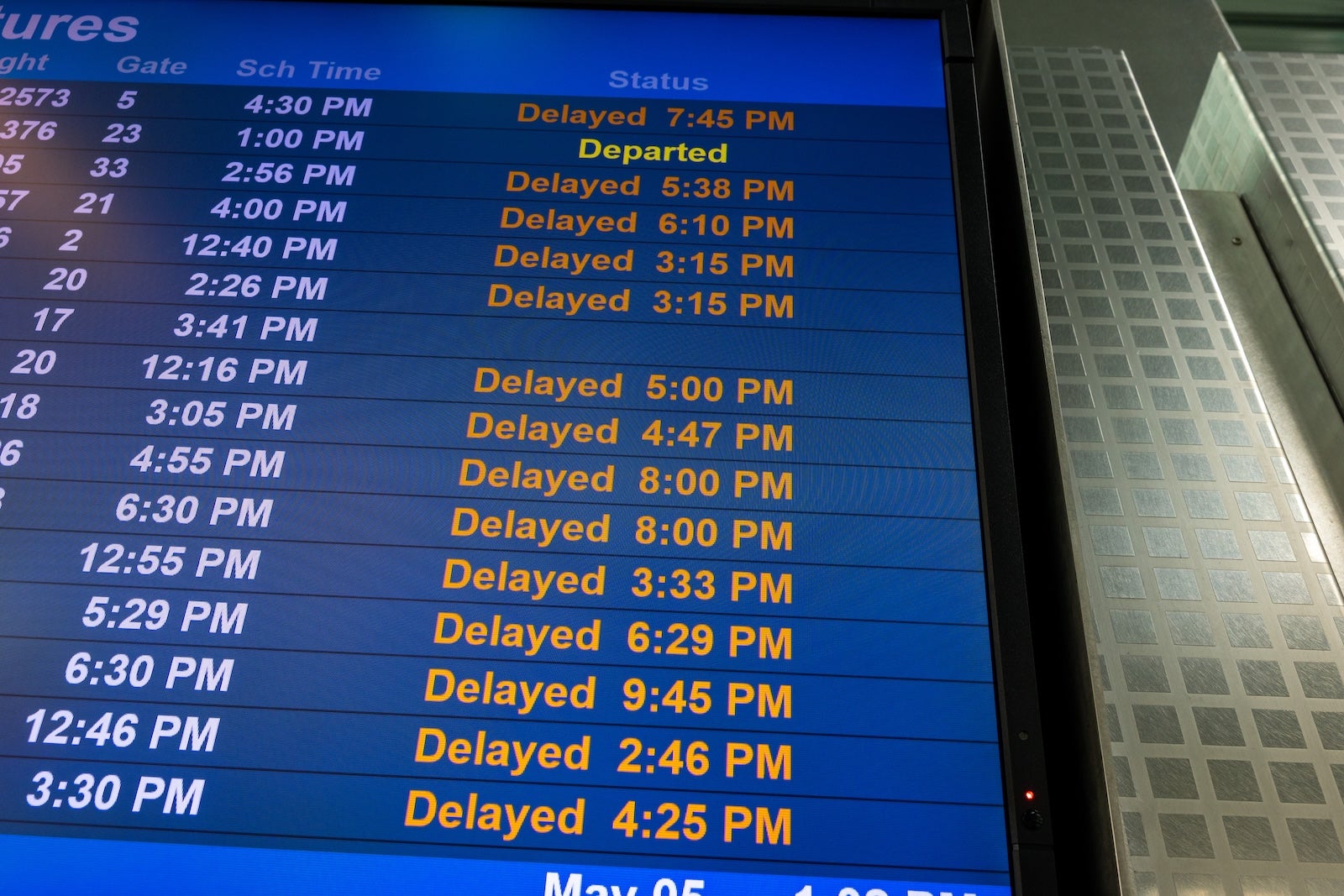
This week, the head of the nation’s top air traffic controllers union warned that the air travel woes were unlikely to improve until the government reopens.
“The problems are mounting daily,” Nick Daniels, president of the National Air Traffic Controllers Association, said at a news conference Tuesday.
What about TSA checkpoints?
Like air traffic controllers, Transportation Security Administration officers are working without pay.
So far, checkpoints have been “minimally impacted” nationwide, the agency told TPG Thursday.
However, “Occasional delays at some security checkpoints are to be expected,” a spokesperson said. “The longer the shutdown goes on, the more severe the impact on our TSA workforce.”
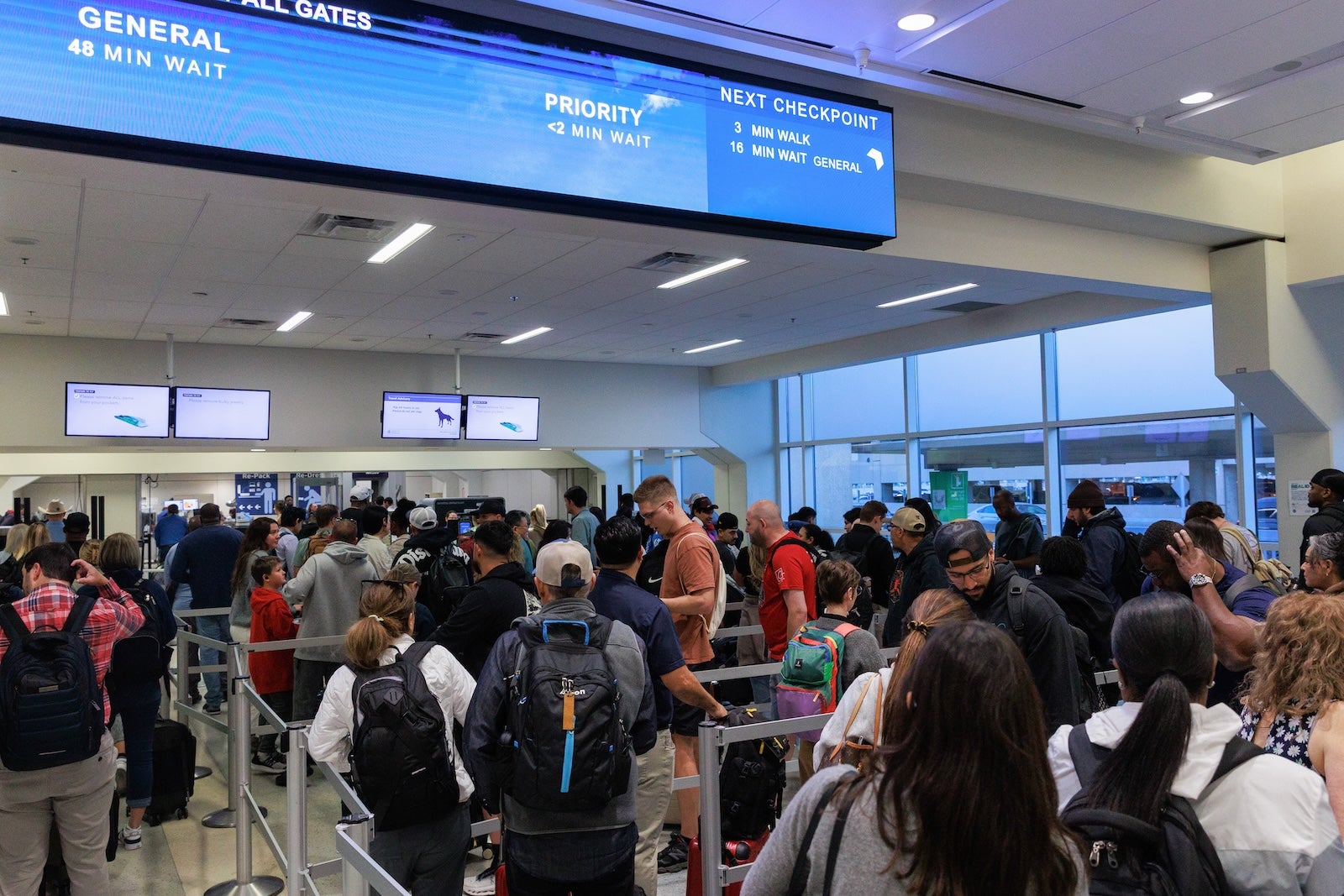
On top of providing meals for critical aviation workers, airlines are making some changes to help travelers get through airports more smoothly.
Delta Air Lines said its employees were assisting with logistics at TSA checkpoints to free up certified TSA screeners to process customers.
The airline also noted that its corporate employees were assisting customers with moving through the lobby at its Hartsfield-Jackson Atlanta International Airport (ATL) megahub.
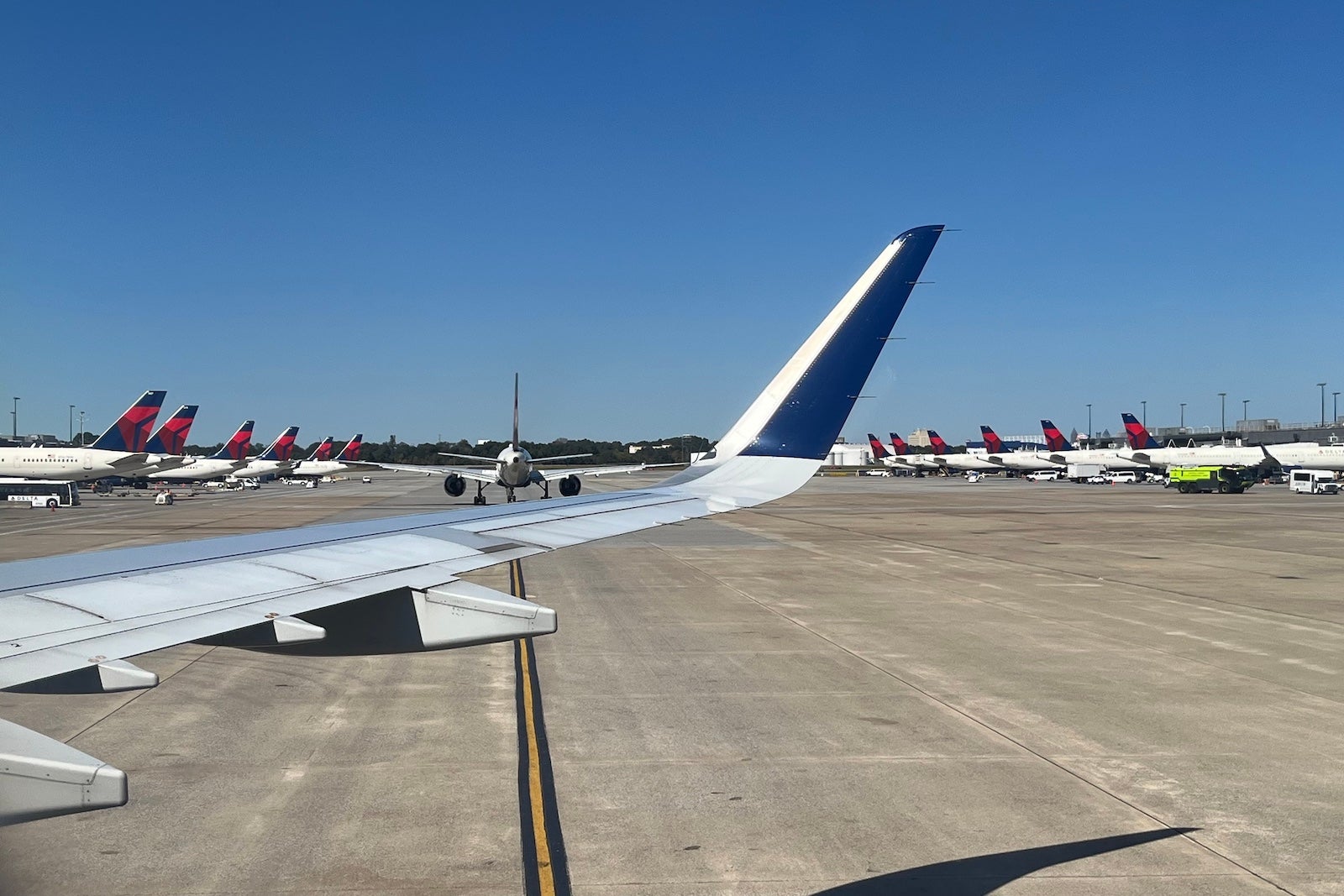
Delta closes special business-class security entrances
One significant change some Delta customers will notice: Due to TSA staffing concerns, the airline has temporarily closed its semiprivate security checkpoints for Delta One customers at JFK and LAX.
Tips for traveling during the government shutdown
With no clear indication of when the government shutdown might end, here are some tips for flying — whether you’re traveling this week or booking holiday flights.
Consider getting to the airport a little earlier
The TSA continues to recommend travelers get to the airport at least 2 to 2 1/2 hours before their flight. That’s roughly in line with its normal guidance.
My advice: Just get there a little earlier than you normally would. Maybe tack on 20 or 30 minutes to your normal airport routine — whether you use the standard lanes or have TSA PreCheck access, and whether you’re a “three hours early” traveler or someone who tends to cut it close.
It’s official: Travelers no longer have to remove shoes at TSA checkpoints
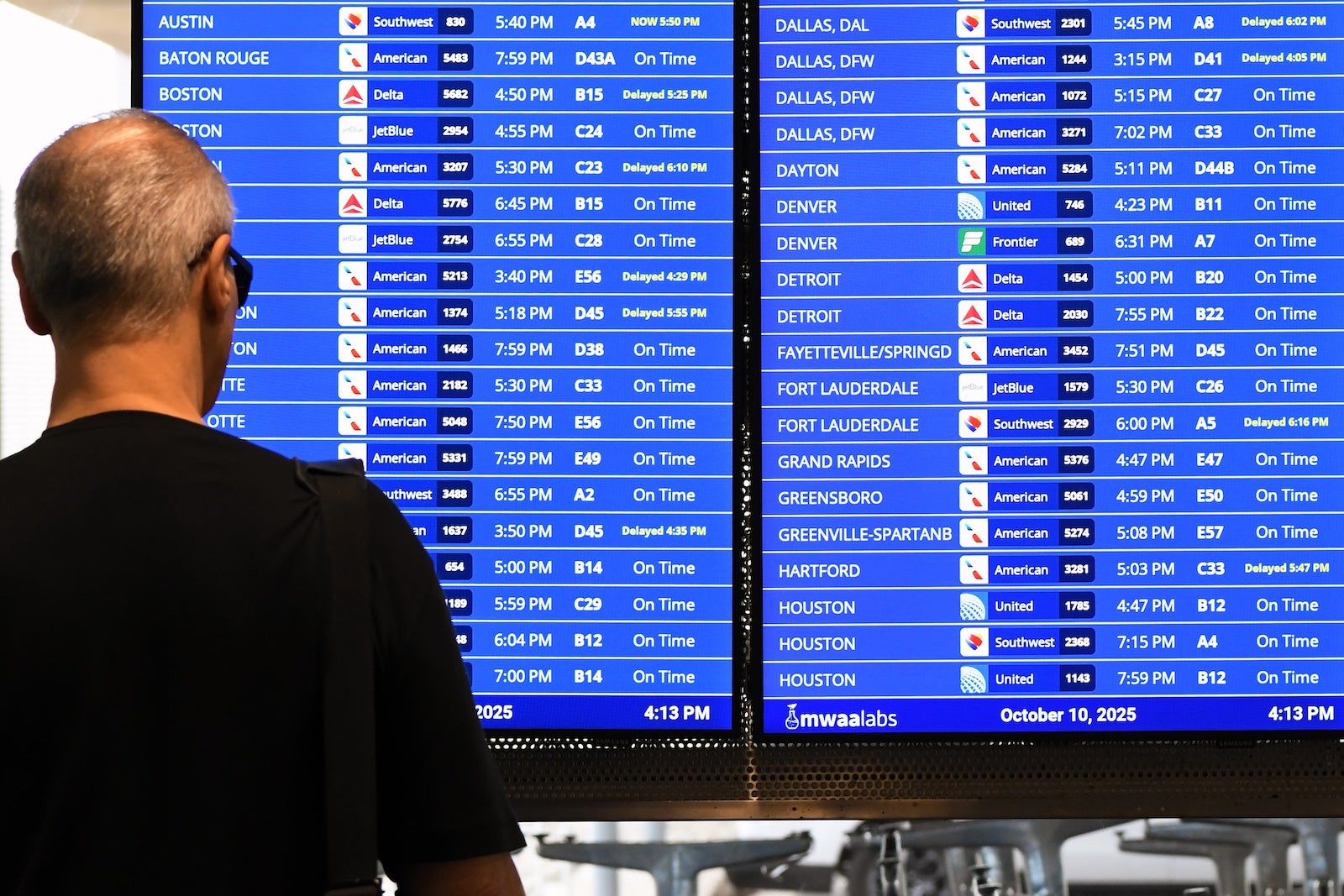
Book nonstop flights or longer connections, if you can
If you’re booking travel for the coming weeks, I’d opt for a nonstop flight if possible.
Flight cancellation rates in October have been remarkably low — just 0.3% of all flights aboard U.S. carriers, according to FlightAware. That’s better than what we saw in September, when the government was open.
Delays, however, remain a very real concern.
If you’re not able to fly nonstop, I’d avoid that tight, 40-minute connection if you can. After all, a 45-minute delay becomes a much bigger problem if it causes you to miss your connecting flight.
Prepare for a longer wait on the plane
Load up the iPad with more shows, download that extra podcast and bring a bottle of water. The biggest impact customers are likely to see from air traffic control-related delays is longer taxi times or extra time in a holding pattern before landing.
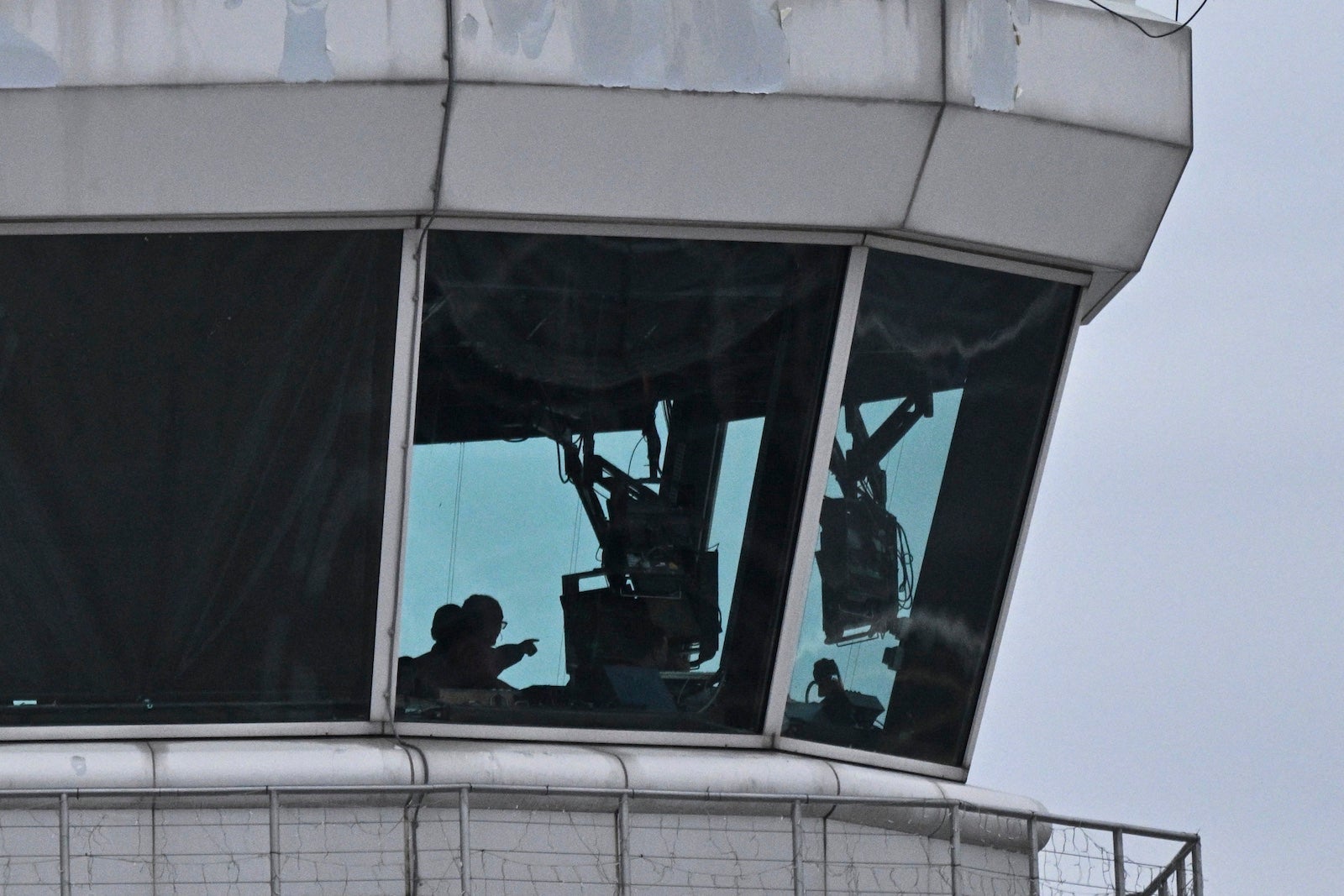
Have the necessary supplies, entertainment, battery life and refreshments so that you’ll be ready if a two-hour flight turns into 3 1/2 hours on board the plane.
Stay glued to your airline’s app
Watch for chances to switch to a new itinerary or take advantage of a travel advisory if an airline gives you extra flexibility. If trouble pops up, you may be able to make all the necessary changes with a few taps in its mobile app.
Read more: Flight canceled or delayed? Here’s what to do next
Book with a credit card that has travel insurance
Airlines aren’t likely to foot the bill if you get stranded because of the government shutdown.
That means you’d likely be on the hook for that unexpected hotel night or dinner out if you get delayed overnight.
This is where a travel credit card that carries travel insurance protections can come in handy, and help you get reimbursed for unplanned travel delay costs — something to consider if you’re booking holiday travel.
Looking ahead
These mounting air travel and shutdown concerns come less than four weeks before the start of the Thanksgiving travel rush.
Keep in mind, the Sunday after Thanksgiving is usually one of the busiest travel days of the entire year.
“We are expecting a record holiday travel season. However, if the shutdown continues much longer, Americans will have to pack their patience and be prepared for more delays, unfortunately,” Airlines for America, a lobbying group for the top U.S. carriers, said in a statement Thursday.
As of Saturday, the U.S. Travel Association reported the shutdown has cost the American tourism industry at least $4.3 billion in lost revenue.
Related reading: